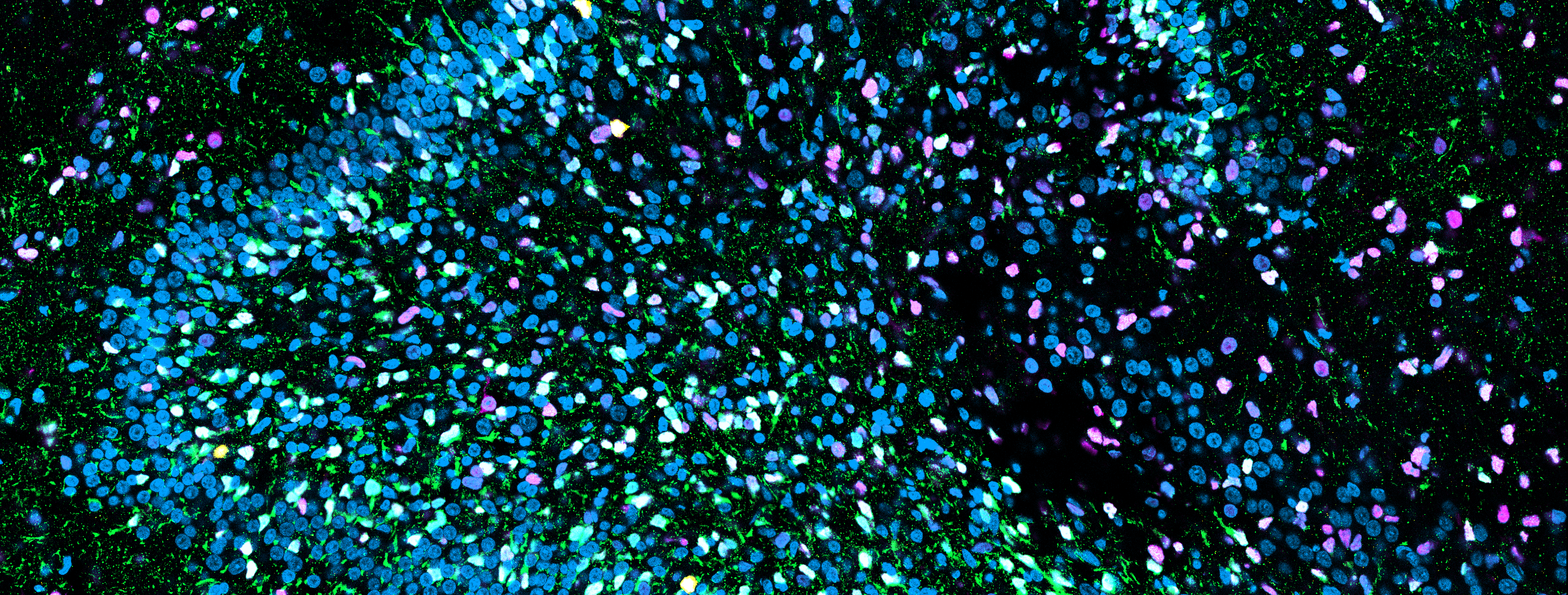Speaker
Description
During neural development, neuronal stem cells differentiate into functional neurons that make up the human brain. Transcription regulators ensure the timely expression of genes required for neuronal differentiation. Perturbed transcription can cause neurological and neurodevelopmental disorders as well as lead to the development of cancer. It is therefore crucial to identify and characterize transcriptional regulators involved in these processes to understand disease origin and to develop new treatment strategies. We identified PHD finger protein 3 (PHF3) as a key player in the regulation of neuronal gene expression and neuronal differentiation. PHF3 directly binds RNA polymerase II and regulates transcription and mRNA stability. The molecular mechanism of how PHF3 chooses its targets and regulates neuronal differentiation remains unresolved. Our preliminary data indicate that loss of PHF3 in human induced pluripotent stem cells (hiPSCs) due to gene knock-out (KO) or acute degradation impairs differentiation into functional neurons. Single-cell RNA-sequencing (scRNA-seq) revealed accelerated neuronal differentiation in PHF3 KO cells with a higher proportion of neurons and a lower proportion of radial glial and intermediate progenitor cells. This is coupled with deregulation of transcription factors known to be essential for neurogenesis. As a result, neuronal functionality is compromised in PHF3 KO, which show reduced neurite length and impaired spontaneous excitatory input measured by patch-clamp recordings. Insights gained from this project will provide a comprehensive understanding of PHF3 function in neuronal differentiation, paving the way for new therapeutic approaches tackling neurodevelopmental diseases.
| Author(s) | Magdalena Engl* (1,2,3,4), Filip Horvat (1), Ruth Drdla-Schutting (5), Lisa-Marie Appel (1,2,3), Vedran Franke (6), Melania Bruno (7), Dea Slade (1,2,3) |
|---|---|
| Affiliation(s) | (1) Max Perutz Labs, Vienna BioCenter, Dr.-Bohr-Gasse 9, 1030 Vienna, Austria, (2) Department of Radiation Oncology, Medical University of Vienna, 1090 Vienna, Austria, (3) Comprehensive Cancer Center, Medical University of Vienna, 1090 Vienna, Austria, (4) Vienna BioCenter PhD Program, Doctoral School of the University of Vienna and Medical University of Vienna, 1030, Vienna, Austria, (5) Center for Brain Research, Medical University of Vienna, 1090 Vienna, Austria, (6) The Berlin Institute for Medical Systems Biology, Max Delbrück Center, Robert-Rössle-Straße 10, 13125 Berlin, Germany, (7) Eunice Kennedy Shriver National Institute of Child Health and Human Development, The National Institutes of Health, Bethesda, Maryland 20892, USA |

